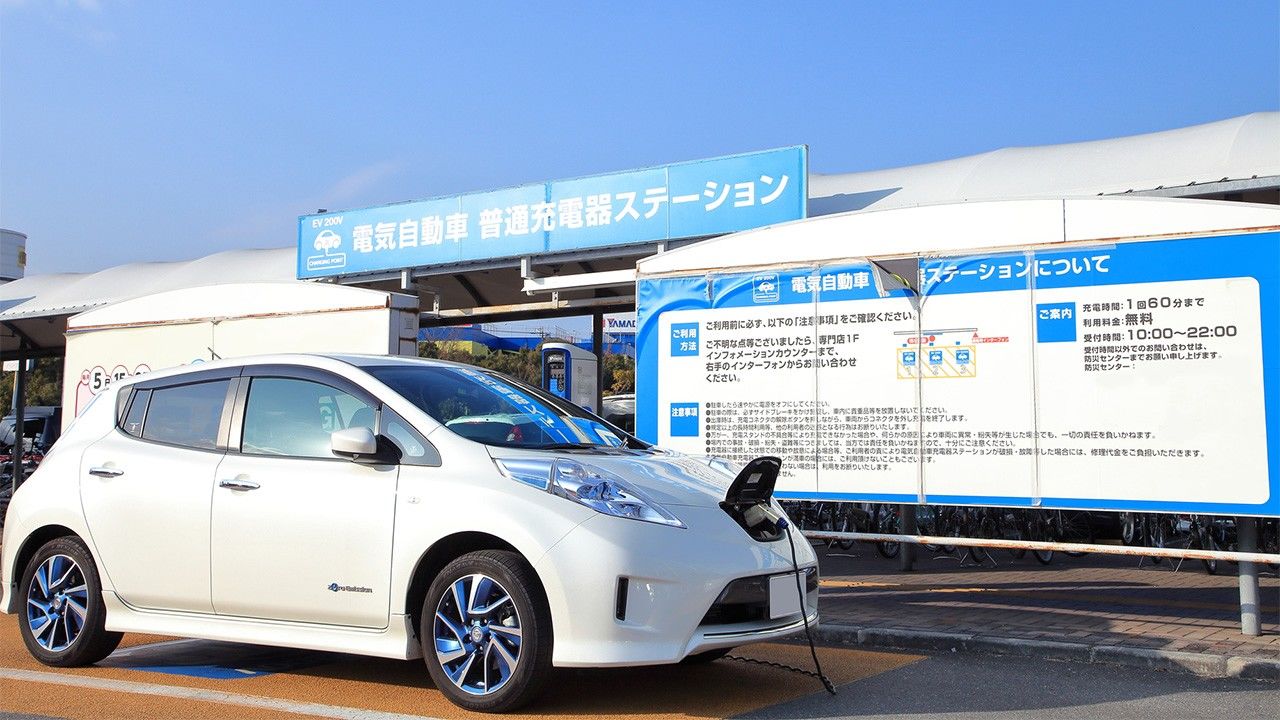
Japan’s 2030 Fuel Efficiency Targets Aim to Get More EVs on the Road
Economy- English
- 日本語
- 简体字
- 繁體字
- Français
- Español
- العربية
- Русский
With the fuel efficiency regulations proposed in early June 2019 on new vehicle sales, the government has set a goal of average fuel consumption to be 25.4 kilometers per liter by 2030. This means a 32.4% improvement on results attained in 2016. The current regulations call for 20.3 kilometers per liter by 2020 (a 24.1% increase from 2009); however, the new proposal aims to further speed up fuel efficiency improvements.
Goals for Next Generation Vehicles in Japan
| 2017 (actual results) | 2030 | |
|---|---|---|
| Conventional | 63.6% (2,791,000 vehicles) | 30-50% |
| Next-generation | 36.4% (1,595,000) | 50-70% |
| • Hybrid | 31.6% (1,385,000) | 30-40% |
| • Electric | 0.41% (18,000) | 20-30% |
| • Plug-in hybrid | 0.82% (36,000) | |
| • Fuel-cell | 0.02% (849) | 0-3% |
| • Clean diesel | 3.5% (155,000) | 5-10% |
Compiled by Nippon.com based on data from the Ministry of Economy, Trade, and Industry.
The previous regulations applied only to gasoline vehicles, while the new improvements in fuel efficiency will also apply to electric vehicles and plug-in hybrids. Although electric vehicles do not require gasoline, the thermal power stations used to create the electricity emit carbon dioxide, so these newly proposed regulations are a way to prompt manufacturers into improving indirect emissions. Manufacturers will need to clearly specify the level of fuel consumption and extend the distance their vehicles can travel per charge.
The new regulations require manufacturers who sell vehicles in Japan to achieve the fuel efficiency targets as an average of their total sales. According to the Ministry of Economy, Trade, and Industry, in 2017 the EV ratio was 0.41% and plug-in hybrid ratio was 0.82%. That is still a long way off the goal of 20-30% by 2030. By tightening fuel efficiency regulations, the government hopes to promote the development of vehicles with higher environmental performance. Manufacturers will find themselves compelled to re-evaluate their strategies, which currently center on gasoline vehicles.
(Translated from Japanese. Banner photo © Pixta.)